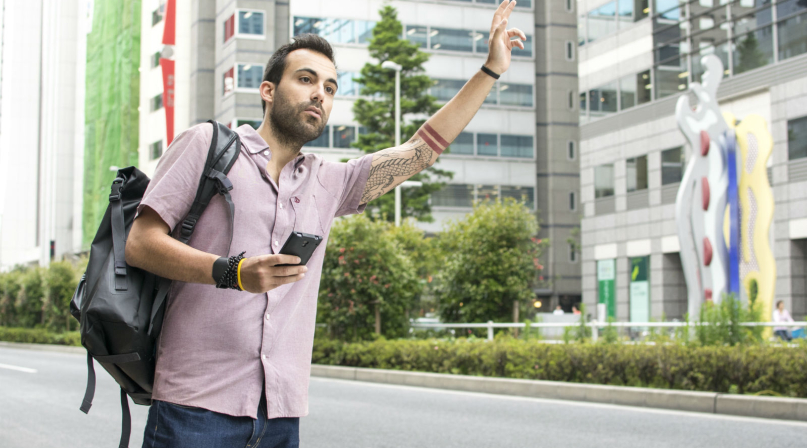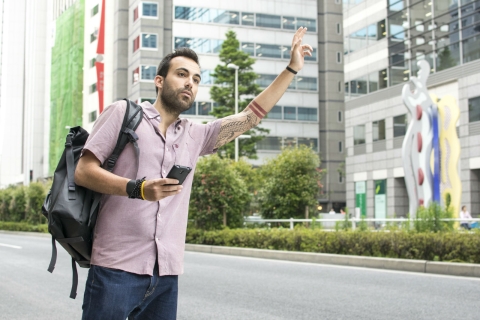Going the extra mile to fight crime
Author
Upcoming Events
Related News

Key Takeaways
In September, Macomb County, Mich. Prosecutor Eric J. Smith announced what is likely the nation’s first program to use technology developed by ride-hailing pioneer Uber to connect crime victims and witnesses to court appearances.
Under Smith’s plan, crime victims get personal chauffeurs as he seeks to reduce delays and dismissals that can occur when crime victims or witnesses lack transportation to get to court.
Dubbed “Uber Central,” the technology service was launched in 2016 as a new way for businesses to connect with their customers. Businesses use the service to request, manage and pay for multiple Uber rides on behalf of their customers. Smith has adapted the ride-hailing tool for government service.
“We are literally going the extra mile to fight crime,” Smith said. “Using new technology, my office is helping crime victims get a ride to court. We can monitor their ride progress, and even greet our witnesses when they get dropped off at court. Crime victims deserve respect, and helping them get to court is one way we show that respect.”
Smith said a court case can be delayed or even dismissed when a crime victim or witness fails to appear and testify in court, which may happen if a crime victim has no transportation.
Alisha Steward of Macomb Township, the victim in an assault case, said the service helped her protect her identity.
“I felt safe getting a ride because I was worried that if I used my car, someone who knows my car could have followed me home from court.”
When a crime victim does not have a ride to court, Smith’s Crime Victim Advocate team may now use the Uber Central app to request a ride on the crime victim’s behalf.
No smartphone? No problem. The Uber Central service automatically calls crime victims on their home phone when their ride is coming, and lets the prosecutor’s office know witnesses are on the way to court on time.
Sometimes a police department will give a crime victim or witness a ride to court to testify.
Smith’s new service is helping police spend more time keeping the community safe, by reducing the need for police to spend time transporting witnesses to court. Some witnesses do not want neighbors seeing a police car coming to their house to take them to court, and Smith’s service helps crime victims with that concern.
Smith said his office started testing the new Uber Central service in April of last year.
For court hearings on days when Smith’s crime victim ride service was used, none of the cases involved were adjourned or dismissed due to a crime victim failing to appear in court.
Since April 2017, crime victims and witnesses have used the service to make 110 trips to or from their homes and the various district courts in Macomb County, and the circuit court, at a cost of $2,516, which includes some trips where witnesses were picked up from Detroit Metropolitan Airport to testify. Criminals pay the costs.
For future cases, Smith said his office will seek reimbursement as part of court-ordered restitution costs paid by convicted defendants.
On cases where a defendant cannot pay, trips will be paid for from forfeiture funds seized from criminal activity. Smith said it’s a small cost for a big benefit in the fight against crime.
“It worked great!” said Gary Laight of Warren. He did not have transportation, and last year used the new service to get to court with his son, who was the victim of a robbery and suffered a fractured leg.
“We got a text a message when our ride was on the way. We were picked up at home and dropped off on time at the courthouse. It was convenient and helpful.”
Had his son been unable to appear in court, it’s possible the case, alleging unarmed robbery, a 15-year felony, might have been dismissed.

Attachments
Related News

County Countdown – April 21, 2025
Every other week, NACo's County Countdown reviews top federal policy advocacy items with an eye towards counties and the intergovernmental partnership. This week features the ARPA reporting deadline, a budget reconciliation update and more

U.S. House reintroduces legislation to address the Medicaid Inmate Exclusion Policy
Two bipartisan bills aimed at addressing the Medicaid Inmate Exclusion Policy (MIEP) were recently reintroduced in the U.S. House of Representatives.

FEMA halts disaster mitigation grant program
On April 4, the Federal Emergency Management Agency (FEMA) announced it will not allocate $750 million this year for the Building Resilient Infrastructure and Communities (BRIC) grant program. According to the press release, FEMA will also stop funding BRIC projects that were previously approved and are still underway.
